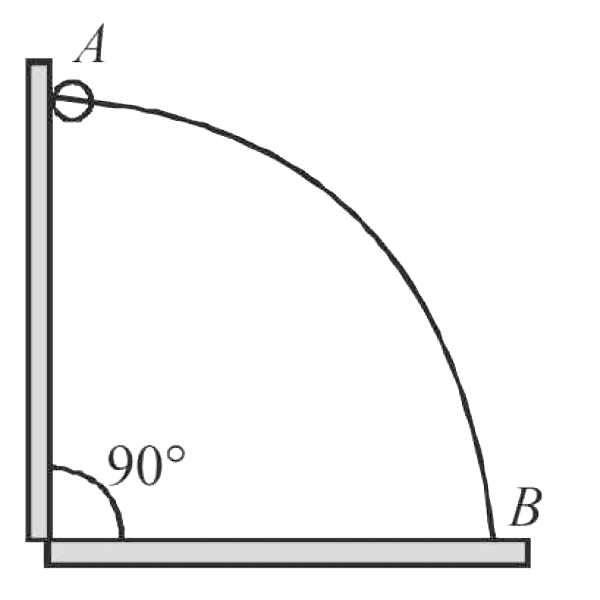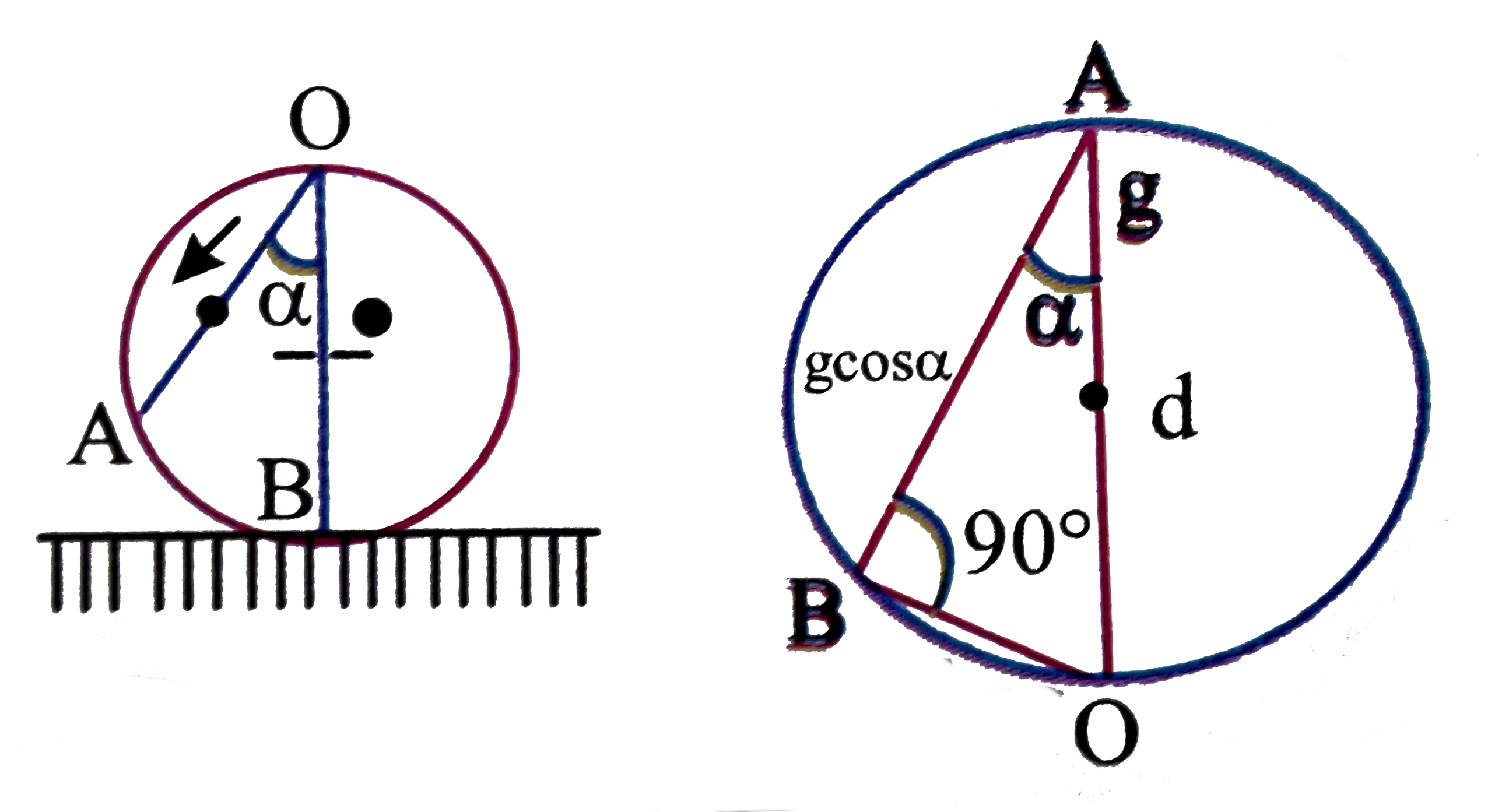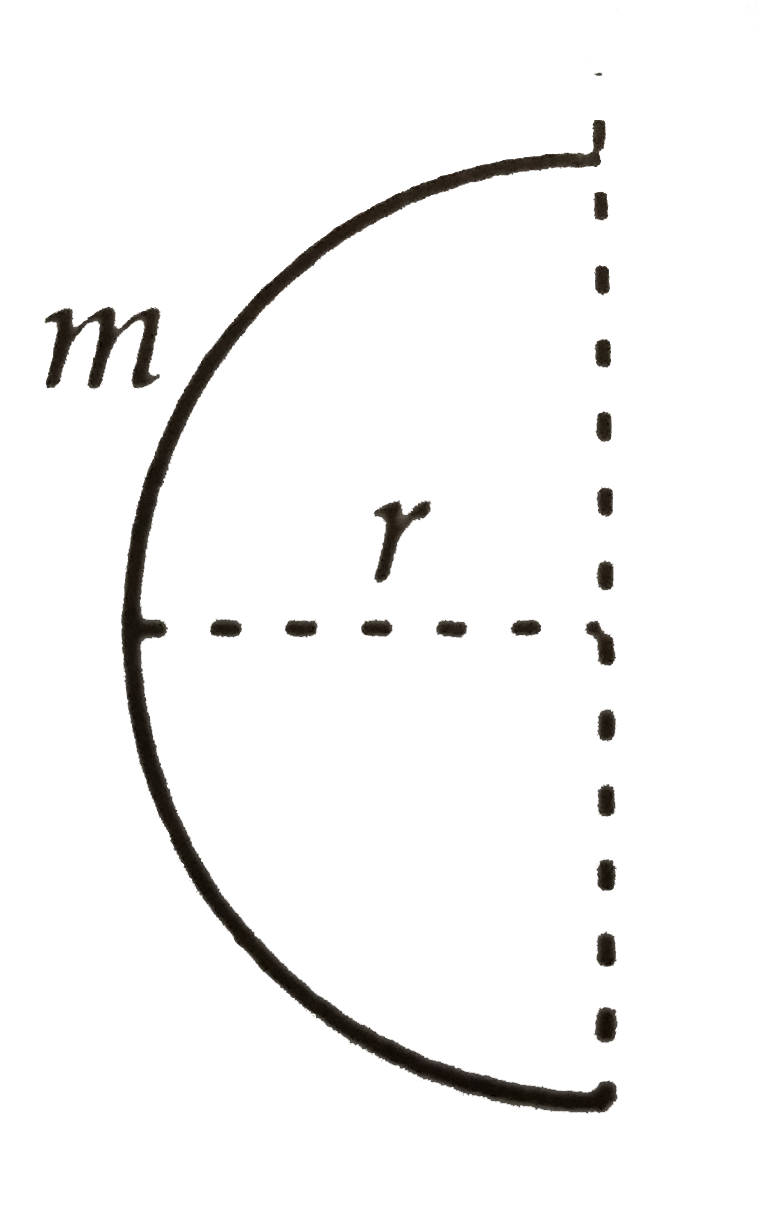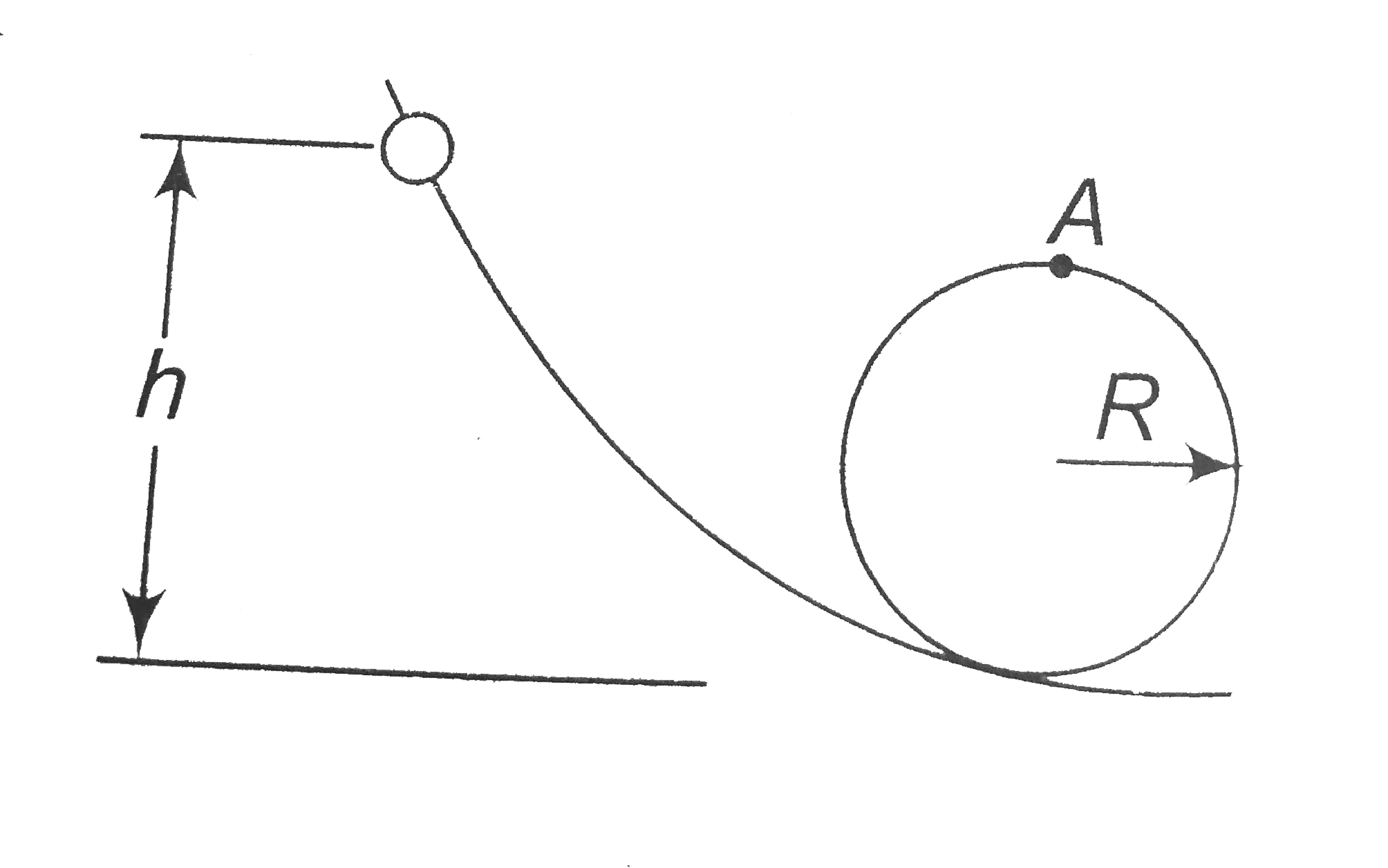A wire, which passes through the hole in a small bead, is bent in the form of quarter of a circle. The wire is fixed vertically on ground as shown in the figure. The bead is released from near the top of the wire and it slides along the wire without friction. As the bead moves from A to B, the force it applies on the wire is

always radially outwards
always radially inwards
radially outwards initially and radially inwards later
radially inwards initially and radially outwards later.
The correct Answer is:D
When bead is at A, the force it applies on the wire is redially inwards. When it reaches at B, it strikes the surface and pushed outwards. Thus, force is radially outwards.
Similar Questions

A frictionless wire is fixed between A and B inside a circle of radius R. A small bead slips along the wire. Find the time taken by the bead to slip from A to B.
View SolutionIf the current in a wire is flowing in the vertically downward direction and a magnetic field is applied from west to east, what is the direction of force on the wire ?
View Solution
Knowledge Check
A wire of mass m and length l is bent in the form of a quarter circle. The moment of the inertia of the wire about an axis is passing through the centre of the quarter circle is approximately
A0.6ml2Bml2C0.2ml2D0.4ml2A thin wire of length l and mass m is bent in the form of a semicircle as shown in the figure. Its moment of inertia about an axis joining its free ends will be
 AMl22BMl2π2C2Ml2π2DMl22π2
AMl22BMl2π2C2Ml2π2DMl22π2A head slide without friction around a loop the (figure). The bead slide is released is from rest at a height h=3.50R. How large is the normal force on the bead at point (A) if its mass is 50g ?
 A0.10N downwardB0.10N upwardC1.0N downwardD1.0N upward
A0.10N downwardB0.10N upwardC1.0N downwardD1.0N upward
A uniform wire is bent in the form of a circle as shown in the figure. The effective resistance between A and B is maximum if theta is
_PHY_E01_003_Q01.png)
View SolutionA wire is placed between the poles of two fixed bar magnets as shown in the figure. A small current in the wire is into the plane of the paper. The direction of the magnetic force on the wire is

View SolutionA bead can slide on a smooth circular wire frame of radius r which is fixed in a vertical plane. The bead is displaced slighty from the highest point of the wire frame. The speed of the bead subsequently as a function of the angle θ made by the bead with the verticle line is
View SolutionA bead of mass m is located on a parabolic wire with its axis vertical and vertex at the origin as shown in figure and whose equations is x2=4ay . The wire frame is fixed and the bead can slide on it without friction . The bead is released from the point y = 4a on the wire frame from rest . The tangential acceleration of the bead when it reaches the position given by y = a is :

View SolutionA bead can slide on a smooth circular wire frame of radius R which is fixed in a vartical plane. The bead is displaced slightly from the highest point of the wire frame. The speed of the bead subsequently as a function of the angle θ made by the bead with the vertical line is
View Solution
